Dir: Werner Herzog. UK/Germany. 2001. 130mins.
After many years dedicated to stage, documentaries and guest performances in films directed by others, Werner Herzog, one of the original pillars of New German cinema, makes a return to feature-length fiction. However, as with his previous films (such as The Enigma Of Kaspar Hauser and Fitzcarraldo), this is not quite fiction, since his new effort is based on a true story that ties together a legendary Jewish strongman and a no less legendary clairvoyant considered an early prophet of the Nazi gospel. Conceived as an encounter between pure, natural innocence on the one hand and ultimate decadence on the other, with the added controversial dimensions of having both extremities represented by Jews, the picture raises a number of relevant issues, but never truly explores them in depth. Nor does it deliver the dramatic wallop one would expect from a story that takes place in 1932, at a cardinal moment in the modern history of Germany, the demise of the Weimar Republic at the hands of Hitler's National Socialist hordes.
The exploits of strongman Zishe Breitbart (Ahola), the shy, soft-spoken son of a village Jewish blacksmith, draw the attention of a Berlin agent who brings him to the capital and incorporates him in the occult show of Jan Eric Hanussen (Roth). A magician whose stage performances constantly refer to the impending, inevitable triumph of the new order, Hanussen is the darling of Nazi dignitaries, who dote on the occult, gobble up his prophecies and fill to capacity each one of his shows. (Indeed, so enraptured were the Nazis with his special talents that they were prepared to make room for him in their future government.) Conscious of their expectations, Hanussen, an unscrupulous showman through and through, realises the tremendous potential of Zishe's physical prowess on stage but also the imminent danger of revealing his true identity. He therefore chooses to adorn him with a blond wig and a suit of armour, and has him masquerade on scene as a muscular Siegfried, the perfect Teutonic hero for the new spirit of Germany.
But nothing can change Zishe's simple, trusty character, or his devotion to his family and his people. It is little wonder then that at certain point he can no longer stand either the deceit he is part of nor the rabid anti-semitic propaganda brandished by his employer and his protectors. In an act of rebellion, he tears off his costume in the middle of his act, reveals - to everyone's dismay - his actual name and announces that from now on he intends to be the champion of his own people. Convinced that he is the new Samson, who has been chosen to warn the Jews against the terrible dangers awaiting them, he sets about restoring those wrongs done around him, starting with Martha (Gourari), the much-humiliated refugee pianist on Hanussen's show and prevents her from being pushed into Himmler's bed; later, it is through her testimony that Hanussen's pretense of being a Danish nobleman is dispelled and he is identified as a Czech Jew, Klaus Steinschneider. Put on trial for fraud, he is found guilty, deprived of the Occult Ministry that was almost in his reach and executed. Zishe goes back to the Polish village he came from and, with his youngest brother, starts beating the countryside, trying to persuade the Jews they need to become strong men like him if they wish to survive.
Treading on familiar grounds covered by many earlier films, most notably Istvan Szabo's far more compelling Hanussen (1989), Herzog has a hard time providing new elements or offering a fresh slant on the available ones. While the period is carefully recreated for the camera, there is a disturbing sense of 'dejà vu', certainly in the Jewish 'shtetl' sequences but also in many of the more lavish Berlin setups. Particularly missing is a touch of passion that would lend more credibility to the tremendous reputation of Hanussen's shows and to the reactions they elicited from his over-excited audiences. Tim Roth has already gone on record to say that a German actor might have had a closer rapport with the director and done better with the part. His Hanussen looks like a cynical, uni-dimensional Svengali, reciting texts rather than acting them, sadly devoid of the pure animal magnetism generated by Klaus Maria Brandauer, who played the same part for Szabo. On the other hand, faithful to his reputation for working with amateurs, Herzog does much better with both Finnish Jouka Ahola, a former holder of the World's Strongest Man title, who plays Zisha and real-life pianist Anna Gourari (Martha). The two of them are far more at ease in their parts which, granted, are also far less demanding.
The film's main problem, however, is its predictability. In the past, Herzog usually managed to surprise with his gallery of outlandish characters and less than orthodox story-telling manners. Here however, he seems to have grown more conventional and less driven than ever before. He dutifully brings up a number of relevant issues, such as the conduct of pre-Nazi German authorities, but never delves into them, and seems quite happy to deliver a well-behaved interpretation of a historical moment that was anything but well-behaved.
Prod co: Werner Herzog Filmproduktion, TATFILM, Little Bird FilmFour
Int'l dist: FilmFour
Prods: Gary Bart, Werner Herzog, Christine Ruppert
Scr: Werner Herzog
Cinematography: Peter Zeitlinger
Prod des.: Ulrich Bergfelder
Ed.: Joe Bini
Music: Hans Zimmer, Klaus Badelt
Main Cast: Tim Roth, Jouko Ahola, Anna Gourari, Udo Kier, Max Raabe, Jacob Wein, Herbert Golder




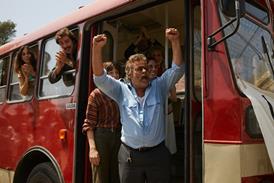
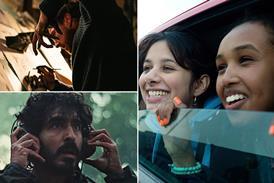

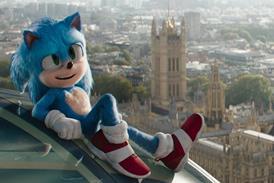




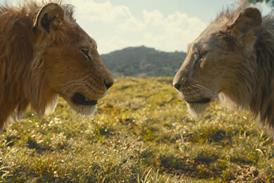
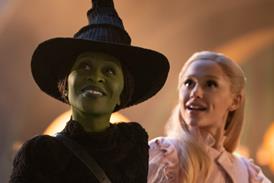
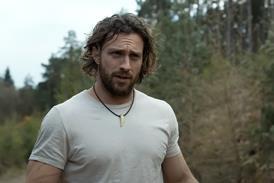
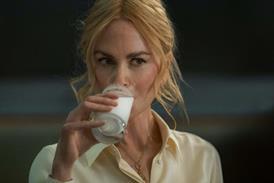


No comments yet